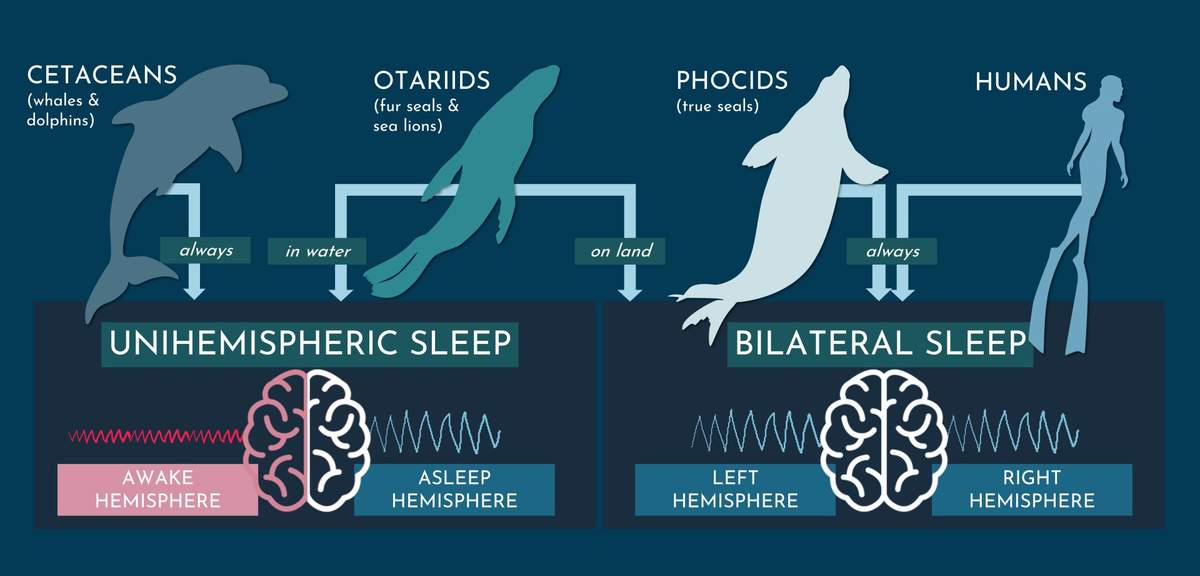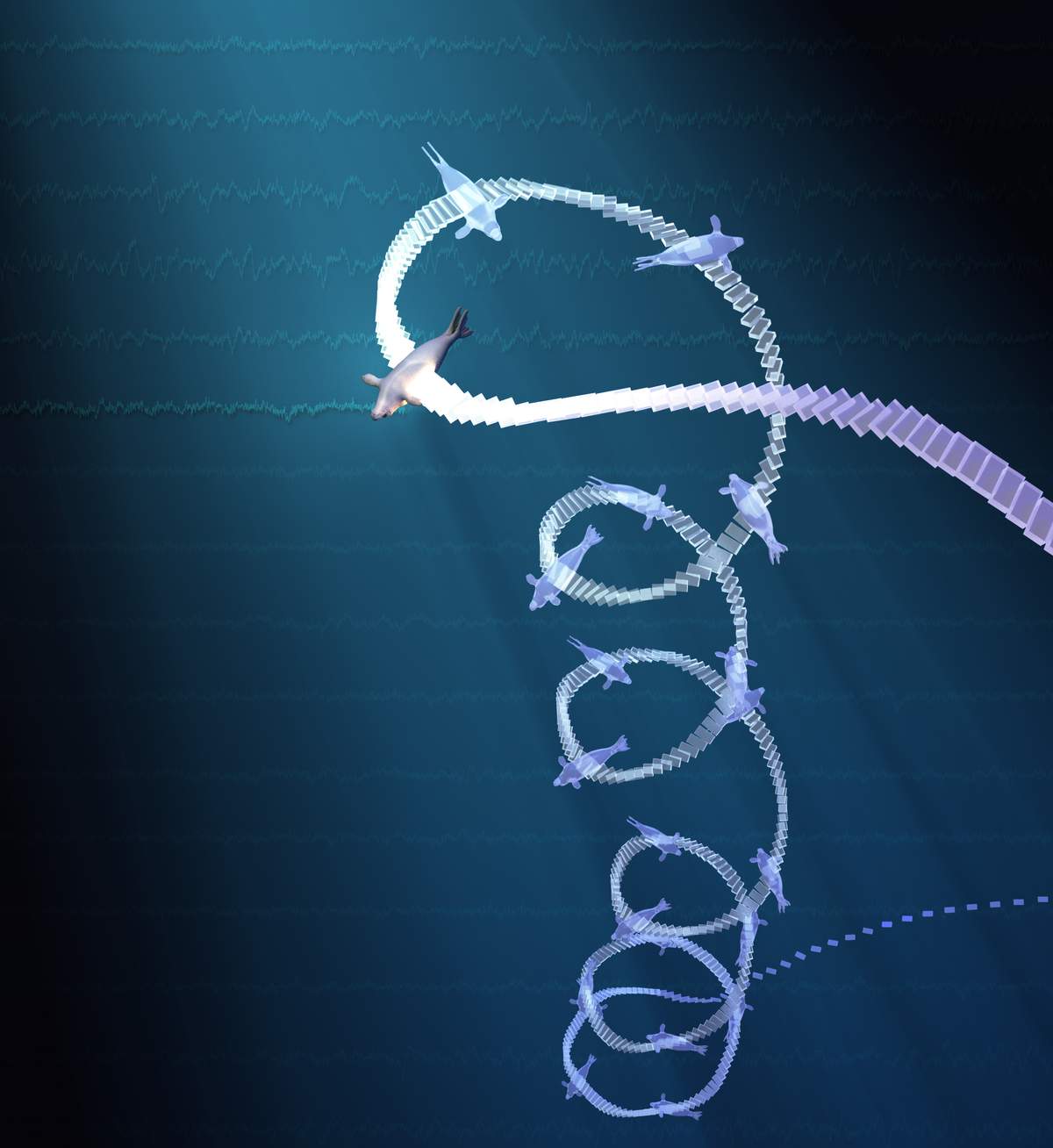If you’ve ever seen elephant seals lying on a beach, you might think all they do is sleep. But now scientists have discovered that when elephant seals are in the ocean, they hardly sleep at all. On average, the seals sleep just two hours a day.
Elephant Seals
Northern elephant seals are huge marine mammals that live in the Pacific Ocean. They can weigh up to 4,000 pounds (1,800 kilograms). They get their name because large male elephant seals have a snout that looks like an elephant’s trunk.
Elephant seals spend most of their time in the ocean. For about seven months of the year, they are in the water constantly.

(Source: Jessica Kendall-Bar, NMFS 23188, UC Santa Cruz.)
Even though elephant seals are large animals, they have to be careful in the ocean. Near the surface, predators like sharks and orcas are a constant danger.
So elephant seals spend most of their time diving deep underwater, looking for food. They can dive as deep as 2,500 feet (750 meters) below the surface, and can hold their breath for over an hour. Usually, they will dive for about 30 minutes, then come up for air for just a couple of minutes before diving again.
Scientists have wondered how elephant seals can sleep while they’re at sea, since they are almost constantly diving.
Animals like dolphins and sea lions have a special trick. One half of their brain can sleep, while the other stays awake. But elephant seals are like humans – both halves of the brain need to go to sleep at the same time.

(Source: Jessica Kendall-Bar, UC Santa Cruz.)
So how do they sleep?
To find out, a scientist named Jessica Kendall-Bar created a special cap that could record the elephant seals’ brain activity. The cap also collected information on the elephant seals’ heart rates, how their bodies were moving, and how deep they were. Dr. Kendall-Bar and her team put the caps on thirteen young female elephant seals.
Humans go through stages when they sleep. Some of the time, when you’re sleeping, you can control your body. But when you’re sleeping deeply and dreaming, your body is temporarily paralyzed. That keeps you from hurting yourself when you’re active in your dreams.
The scientists learned that elephant seals sleep in short bursts while they are diving. They only sleep for about 10 minutes at a time.
The elephant seals had sleep stages similar to humans. As they began to sleep, the seals could control their bodies, gliding down smoothly. But when they were deeply asleep, they simply began to fall, spinning in a circle “like a falling leaf”.

(Source: Jessica Kendall-Bar, UC Santa Cruz.)
The seals woke up in time to go up for more air. In shallower areas, the elephant seals sometimes woke up on the sea floor.
Using the information they gathered from the cap-wearing seals, the scientists created a computer program to study older records of elephant seal trips. This allowed them to get information on over 500,000 “sleeping dives”.
The scientists found that elephant seals only sleep for about two hours a day when they’re in the ocean. That means that the rest they get once they return to land is very important. Back on land, they sleep for about 10.8 hours a day.
The researchers hope that their work will help to protect the places where elephant seals sleep when they’re on land.
